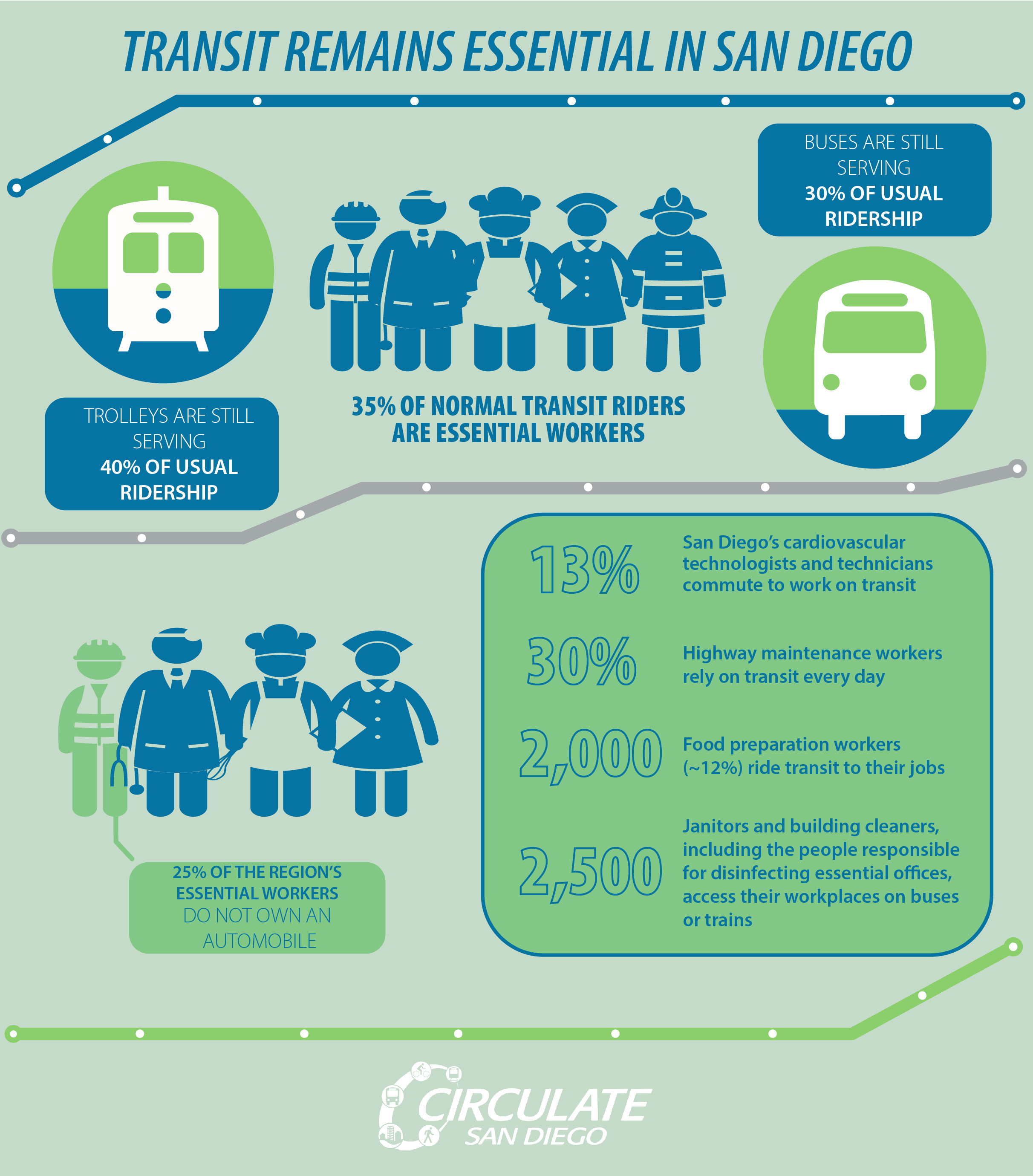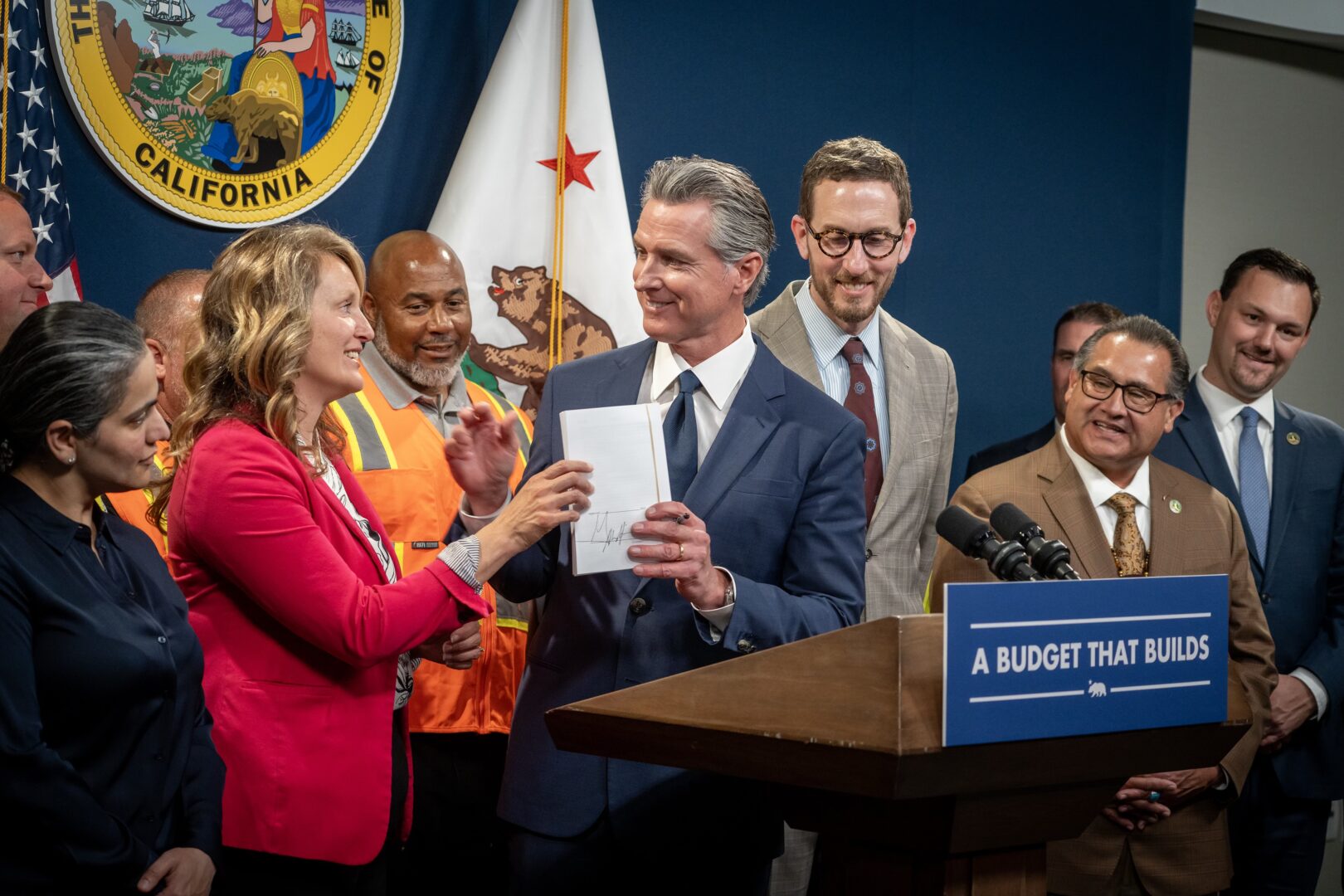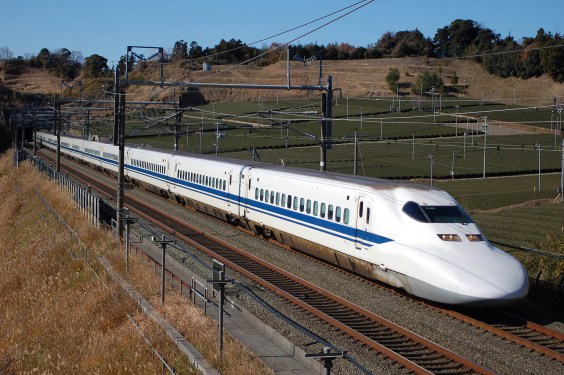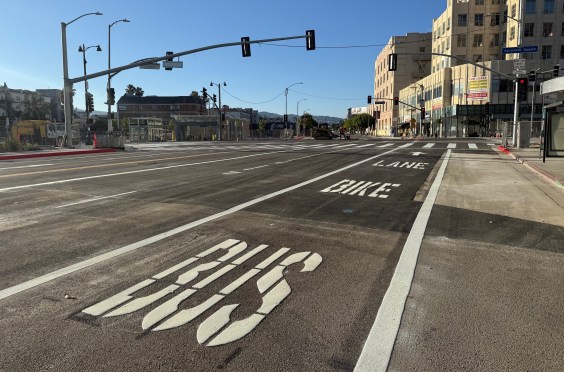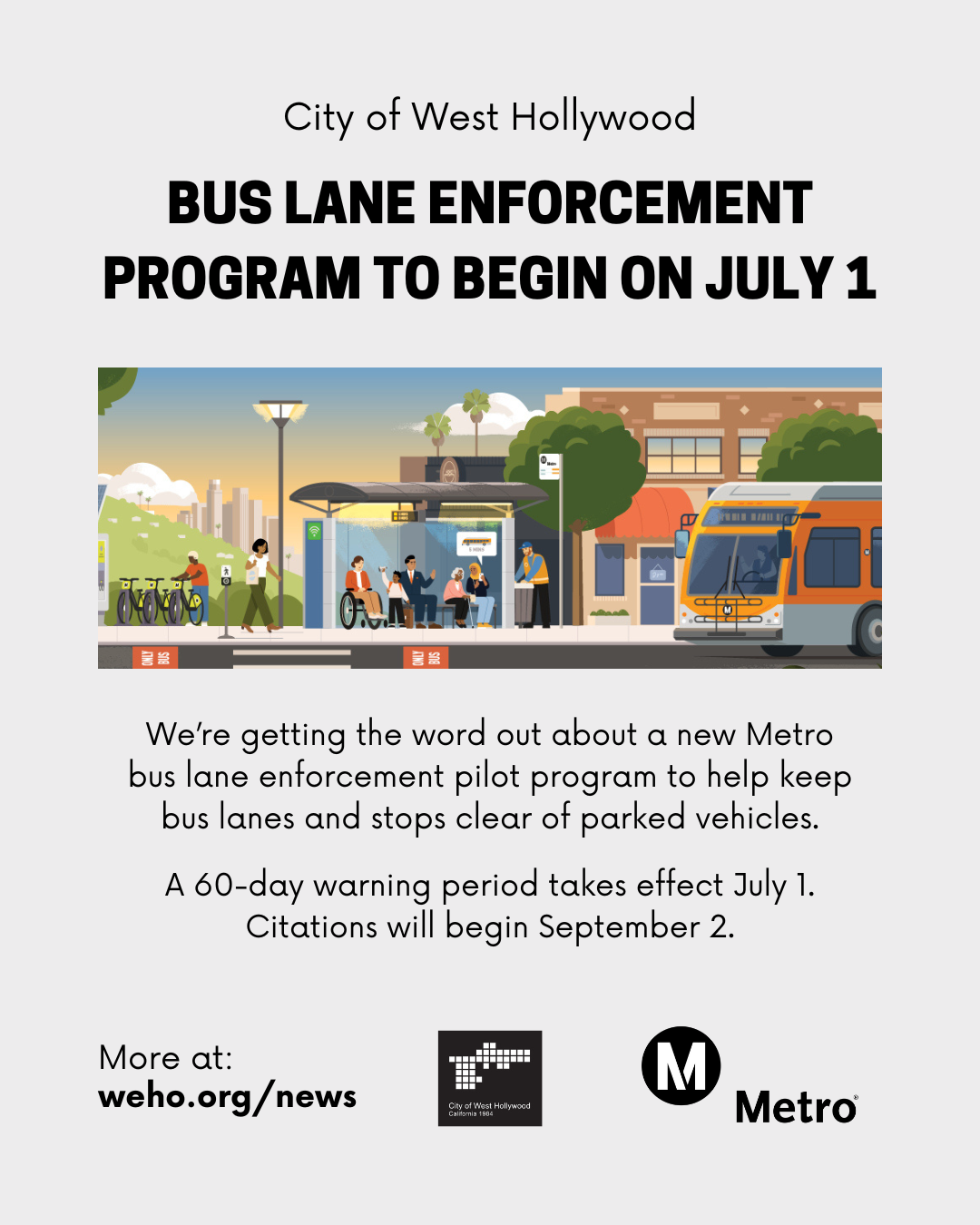Note: GJEL Accident Attorneys regularly sponsors coverage on Streetsblog San Francisco and Streetsblog California. Unless noted in the story, GJEL Accident Attorneys is not consulted for the content or editorial direction of the sponsored content.
Nationally, almost three million people who work jobs that are deemed "essential" commute daily by transit. They include health care workers, grocery workers, pharmacists, janitors, transit workers, and more. During normal times, these workers make up more than a third of total transit riders.
Under the coronavirus shutdown, they can make up almost all transit riders. Circulate San Diego just issued a report that used data from the 2018 American Community Survey to determine that 16,000 essential workers in the San Diego region commute via transit every day.
Transit agencies everywhere are experiencing precipitous drops in ridership - ranging from thirty to eighty percent nationwide - as well as declines in revenue, worker shortages, and difficulty keeping their workers safe. All of this is forcing them to rethink schedules, cut routes, and streamline transit services.
That includes San Diego's MTS, which cut about a quarter of its bus and trolley service earlier this month.
But people doing crucial work that sustains everyone else still need transit to get to those jobs. San Diego buses and trolleys are carrying between thirty and forty percent of their usual ridership-and many, if not most, of those riders are likely to be workers employed in "essential" jobs, as defined by state health department guidance.
"Just like water delivery and trash pick up, mass transit is a vital service," said National City Mayor Alejandra Sotelo-Solis during a call discussing the report. "Transit lines are lifelines for our communities, and it is so important that mass transit continues to operate."
MTS, of which Sotelo-Solis is a board member, has taken steps, like many other transit agencies, to make it safer for both drivers and riders by encouraging rear-door boarding--to give drivers more room--and sanitizing vehicles. They are no longer accepting cash fares, although they want riders to continue paying fares. Drivers are required to wear face coverings, and provided with them, and riders are encouraged to do so.
San Diego had recent experience as well with an outbreak of a contagious disease that threatened its riders. They changed their cleaning protocols when Hepatitus A broke out in the city in 2016, and are applying some of those lessons learned on the coronavirus. They have hand-washing stations at all trolley stops, for example; they wipe down all interior surfaces in vehicles every night with disinfectants, and teams clean buses during the day as well.
On the call this morning, MTS staffmember Robert Schupp said that getting protective equipment for their drivers was a struggle at first. "Shipments we had ordered were diverted to health care workers," he said. "But the supply problem seems better now."
For now, MTS is not requiring riders to wear face masks, nor are they providing them with any. But they are strongly encouraging riders to keep at a safe distance and wear their own face masks - "even a bandana" - via announcements and signs in multiple languages.
